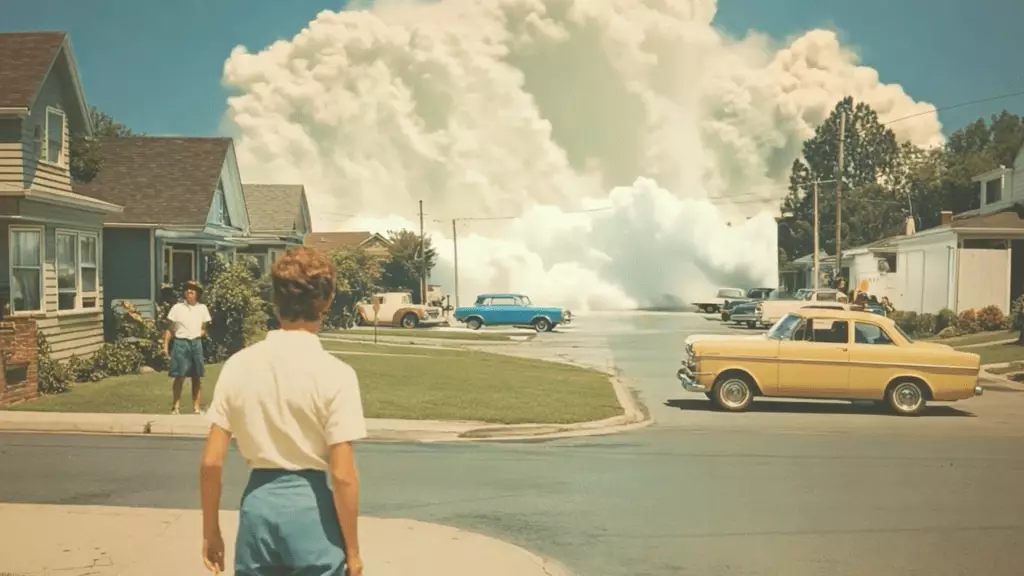The world of cinema finds itself at a perilous crossroads, where the integration of artificial intelligence redefines not just the creative process, but also the very fabric of storytelling itself. The third annual AI Film Festival held at Lincoln Center recently marked a significant milestone in this rapidly evolving landscape, showcasing how AI-driven technology is not merely an enhancement but a transformative force in artistic expression. At the heart of this year’s festival was “Total Pixel Space,” an ethereal 9-minute short film by Jacob Adler, which captivated audiences and judges alike, ultimately winning the top prize.
This triumph raises important questions about the purpose of filmmaking in an era where algorithms may guide narratives. Cristóbal Valenzuela, CEO of Runway, a burgeoning AI company valued at over $3 billion, stood before a near-capacity audience and asserted, “This could well be the most important technological shift any of us has seen in our lifetimes.” While I recognize the allure of innovation and its capacity to democratize the art of filmmaking, there is an unsettling underpinning to this enthusiastic embrace of AI; what does it mean for human creativity, and are we sidelining artistry in favor of cold, calculated algorithms?
A Festival of Dreams: But at What Cost?
With a staggering leap in submissions from 300 to over 6,000 in just one year, the festival provides a snapshot of a burgeoning community eager to explore this new terrain. However, amid the excitement lies a dark undercurrent; the sheer volume of content generated raises concerns about quality versus quantity. The ten finalists, each varying widely in visual style and sentiment, presented a mixed bag of uncharted creativity and arguably, uninspired AI-driven productions. While some works shined with originality born from chance encounters, others felt like mere replications of existing aesthetics—like remixing familiar tunes without adding fresh notes.
One of the evening’s standout films, the runner-up “Jailbird,” directed by Andrew Salter, offered a poignant narrative about the symbiotic relationship between chickens and prisoners, utilizing a documentary style that ensured its humanity remained front and center despite the AI embellishments. This highlights the need for filmmakers to remember that while technology can enhance, it should not overshadow the human elements that make stories relatable and impactful. AI’s role should ideally be supportive rather than dominant—a facilitator of ideas rather than a crutch for lack of them.
Creativity Without Constraints: The Good, the Bad, and the Ugly
The event also featured insights from the multifaceted artist Steven Ellison, known as Flying Lotus, who lamented the existence of boundaries and gatekeeping in creative arts. His perspective, rooted in the philosophy of “f–k around and find out,” emphasizes the liberating potential of AI. But here lies a paradox: while AI can encourage experimentation and spontaneity, it also risks diluting the unique vision that only human experiences can provide. The juxtaposition of an emotionally resonant story like “Jailbird” against more abstract narratives created through whimsical AI-generated processes poses a significant dilemma for today’s filmmakers.
As we embrace AI’s user-friendly interfaces and its promise of limitless potential, we must tread carefully. The spontaneous creation that Ellison promotes carries with it the risk of producing work that lacks accountability or depth. As we see artists relying increasingly on technology to drive their narratives, we may find ourselves in a cultural landscape awash with superficial offerings, overshadowing the nuanced storytelling that challenges and enriches society.
The Path Forward: Embracing Technology, Honoring Humanity
It’s crucial for both creators and audiences to navigate this new world with discernment. As Runway and other tech companies champion the use of AI as a means for democratizing filmmaking, we must advocate for a model that blends technology with the essential qualities of human creativity—emotion, intention, and vision. The festival serves as both a celebration of advancements in the art form and a clarion call to filmmakers: embrace new tools, but never at the expense of your distinctive voice. The true power of cinema lies not just in the visuals or technical feats but in its ability to evoke, to provoke, and ultimately, to connect us as human beings. Only then can we truly harness the magic of algorithms as partners in creativity, rather than as replacements for the irreplaceable essence of the human spirit.


Leave a Reply